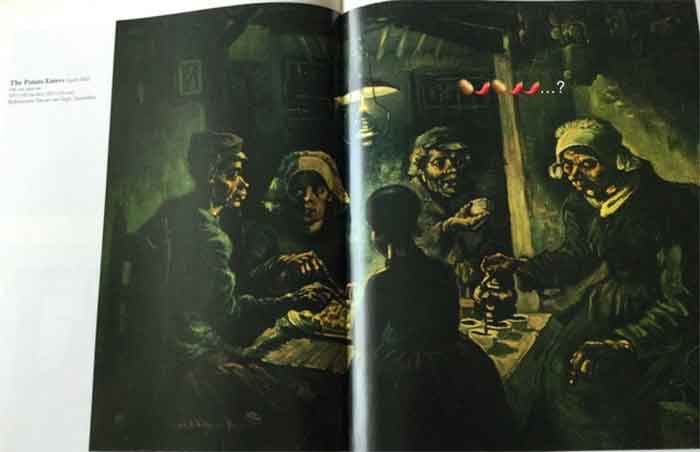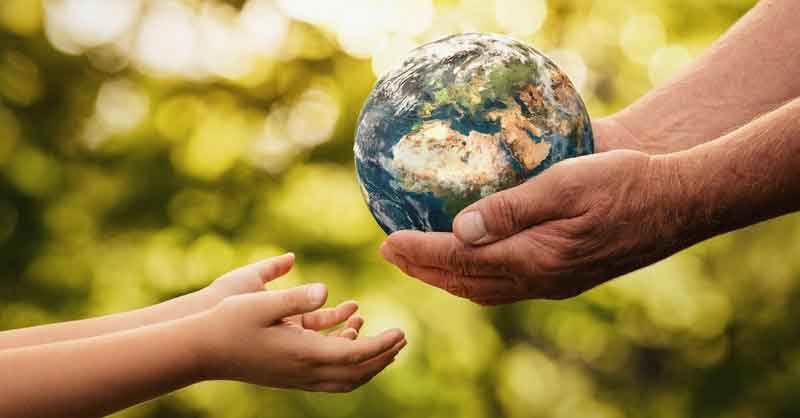
“Oddly enough, it (potato) was introduced to the Himalayas by two Irishmen, captain Young of Dehra and Mussoorie and captain Kennedy of Simla, in the 1820s. The slopes of Young’s house, ‘Mullinger’, were known as his Potato Farm. Looking up old books, I was surprised to learn that the potato wasn’t known in India before the nineteenth century, and now it’s an essential part of our diet in most parts of the country.”
— Rain in the Mountains (1993), Ruskin Bond
Potatoes thus, unified the gastronomic history of mankind as did the writer Ruskin Bond, who adopted a country that suited him and wrote of the love, kindness and warmth he found in local hearts. Or, perhaps, did the country adopt him? I do not know which would be the right perspective. The basic thing is that even chillies, which make Thai, Indian and Vietnamese cuisines not just delicious, but also add to the zest or spice of these, existed only in Latin America till 1492, when Columbus bit his first chilli! Food has actually connected the whole world together and spices have been added to create a wide array of cuisines that tempt our palates. Now potatoes grow everywhere as do chillies!
Despite the world being united by chillies and potatoes, as this year draws to a close, I am left wondering at the way humankind has got clumped into little boxes because of the mutations of a tiny virus. But if this virus is to survive, it will have to mutate to become endemic, and continue to share the Earth with man, as do other viruses. However, more than the dangers posed by the virus, the thing that really frightens me is the change in global perspectives towards foreigners and the acceptance of leadership that is questionable. The fact that the global community continues mute over the ‘annexation’ or ‘take over’ of countries by those who were considered extremists earlier is alarming. This silence does not do away with the mute suffering of the people in those regimes. I do not know if and when history will smoothen out the rough edges and give an opportunity to these challenged victims to rise up in rebellion against might and intimidation. How much will the people suffer before they speak up and rebel to come to their own? Do they even realize that some of the world, which is better off, views them as sufferers and worse off than those who totter under inequalities while servicing the privileged?
This lack of realization is something that has been written about earlier. Alex Haley’s Roots (1976) puts the muteness and unawareness of those who suffered quietly in perspective through the voice of his ancestor, an African slave called Kunta Kinte —“ It took him (Kinte) a long time, and a great many more parties, to realise that they (his master or owner and their friends) didn’t live that way, that it was all strangely unreal, a kind of beautiful dream that the White folks were having, a lie they were telling themselves; that goodness can come from badness, that it’s possible to be civilised with one another without treating as human beings those (slaves) whose blood, sweat and mother’s milk made possible the life of the privilege they led.”
Let me put it in further perspective. That the slave owners were ‘kind’ and ‘good’ to the slaves but would not allow them the freedom to live outside the boxes defined by their own rules which allowed the owners to treat the slaves as their personal property, was something that many of those victimised by slavery did not understand till much later. The concept of xenophobia was widespread as both the Africans and the Americans suffered from major biases rooted in colour and an inability to accept different or foreign ways of life. In Roots, Kinte was from a highly regarded and respected family in his village in Africa. To them the ‘toubab’ or the white man was as much of an alien as the Africans were to the American slave dealers, who stole and sold them as property. Do we have instances of such xenophobia and unacceptance now — long after the outlawing of apartheid and slavery ? How much have things changed in a world unified by potatoes, chillies and spices? An interesting question to ponder.
These days, when democracy takes precedence over all else (even human needs) and huge conglomerates employ many workers, social media is said to be creating an awareness among all people connected by it. Tendayi Achiume, a professor of human rights at UCLA (The University of California, Los Angeles) who holds a key independent role within the UN human rights system as the Special Rapporteur on contemporary forms of racism, racial discrimination, xenophobia and related intolerance, did not of course have any comments on world politics which accepts might to be the right to rule. But she did express hope that the future lay in the hands of children of the world connected through social media. The report read:
“‘When it comes to revolutionary change, it is always led by youth because they are less invested in the status quo. So, in general, when I think of where change is going to come from, I think it’s going to come from the youth,’ she said.
“‘And I think the areas where there is the most hopefulness is the ways in which young people have attempted to appropriate social media platforms, including for the purposes of pushing back against racism and xenophobia.’”
How many users are there of social media? A report put the number at a bit more than half the world population. What about the rest as we move towards a more egalitarian world? How would the other half that remains technologically unconnected respond?
People who inhabit the Sentinel Island of Andamans attack helicopters dropping them aid. Anvita Abbi, a linguist and preserver of moribund languages and cultures contended in a recent interview: “The idea of mainstreaming and merging these tribes into our civilisation is nothing but usurping their rights to their land, forest, water, and way of life. ‘Development’ may kill these tribes.” She was referring to the Great Andamanese tribes with who she had been working, not those on the Sentinel Island, who continue untouched by outsiders.
And perhaps she is right. When conquistadors went to Latin America, they also took with them germs which annihilated the natives. Could this happen to those living in Sentinel Island too? Have they been victimised by the Pandemic? We do not know. They are not connected by social media, internet or by any technological miracle of the twenty first century. The people Abbi worked with spoke a Neolithic language which almost went extinct and has been partially restored by Abbi.
How many people like these are there in the world — those who remain in absolute seclusion? Do we ever account for them? We do not even have the time to acknowledge those who work to supply the privileged with luxuries and lifestyle. Nor do we have the heart to give refuge to those who are suffering under regimes that rule by might and are accepted by all democratic individuals as part of the evolutionary process towards democratising their societies.
At the end of the year, looking at these two perspectives of being connected and progressing towards democratisation and that of the technologically deprived, I am left wondering what would be the bridge to link the technologically-abled, social media savvy, democratic, educated lot to the arrow shooting indigenous of the Sentinel Island?
Are we committing a cultural fallacy by trying to force-blend other ways of life and bring it within our own predictable and accepted spectrum? In an interview, Anvita Abbi went on to explain the difference that can exist in perceptions while explaining the use of the word potatoes for the Great Andamanese tribes whose perception for the word is entirely different. “Potatoes that we eat were perhaps imported by Portuguese, but roots of yam and potatoes always grew in our land as all Adivasis have been using their indigenous varieties of potatoes called by different names. Great Andamanese also have more than five varieties of potatoes that they have been consuming since their establishment in the island. These potatoes appear and taste very different from ours. The English word ‘potato’ may be considered a generic name for the tuber like products in the current work (Abbi’s book, Voices from the Lost Horizon, 2021) and bear no resemblance to the modern word ‘potato’.”
So, now my new year resolution is to learn survival and adaptation skills from potatoes and chillies as well as to acquaint myself with unfamiliar variants of these. May our future on this planet be as prolific and needed as potatoes (of multiple varieties) and chillies and may we unite to blend with the environment!
Mitali Chakravarty writes for love and harmony and in that spirit has founded Borderless Journal.












































